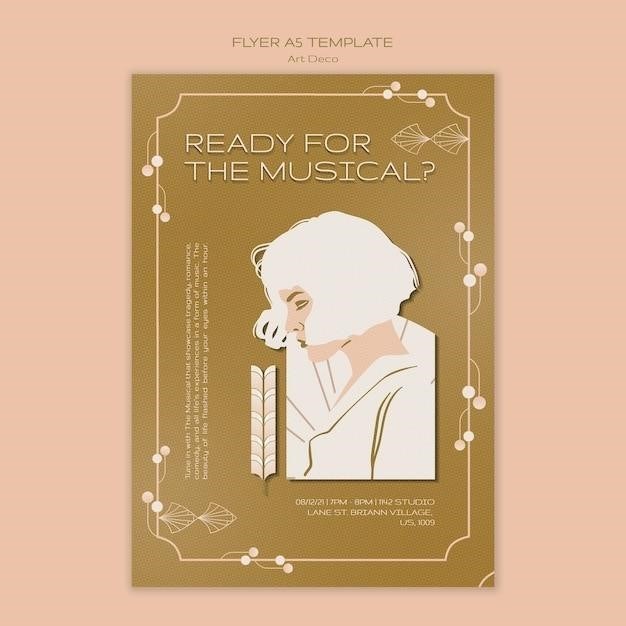Song of Myself⁚ Accessing Walt Whitman’s Masterpiece in PDF Format
Numerous online sources offer Walt Whitman’s “Song of Myself” as a PDF. Free versions exist alongside paid options from various publishers. Check websites specializing in classic literature or open-access archives for free downloads. Paid versions often provide annotations and scholarly essays.
Where to Find Free and Paid PDF Versions
Locating “Song of Myself” in PDF format involves exploring various online avenues. Free versions can be found on websites dedicated to classic literature, such as Project Gutenberg, or through university archives offering digitized texts. These often provide the poem’s text without additional commentary. Paid PDFs, conversely, are available from online bookstores like Amazon or specialized publishers. These paid versions frequently include valuable supplementary materials, such as critical essays, biographical information on Whitman, and detailed annotations enhancing understanding of the poem’s complexities. The choice depends on individual needs and preferences; free options are readily accessible for basic reading, whereas paid versions offer a more comprehensive scholarly experience.
Variations and Editions⁚ 1855 vs. 1892
Significant differences exist between the 1855 and 1892 editions of “Song of Myself,” reflecting Whitman’s evolving artistic vision and societal influences. The 1855 first edition, appearing in the initial publication of Leaves of Grass, presents a shorter, less refined version. It reflects a more radical, experimental approach to both form and content. The 1892 edition, often called the “deathbed edition,” is substantially revised and expanded. Whitman extensively reworked the poem, adding sections, modifying existing ones, and refining the language. This later version, while arguably more polished, also reflects a shift in his perspective and engagement with the American social and political landscape. Accessing both editions allows for a rich comparative study, highlighting the poem’s dynamic evolution over time and Whitman’s continual process of artistic refinement.
Analyzing the Poem’s Themes and Structure
Analyzing “Song of Myself” requires attention to both its thematic richness and unconventional structure. The poem’s central theme is the celebration of self and the interconnectedness of all things. Whitman explores themes of democracy, nature, and the body, often intertwining them seamlessly. He uses free verse, abandoning traditional rhyme and meter, to create a fluid, expansive feel that mirrors the poem’s scope. The structure is non-linear, moving between seemingly disparate observations and experiences, reflecting the poet’s expansive consciousness. Sections often shift abruptly, employing catalogs, lists, and vivid imagery to create a sense of abundance and inclusivity. Understanding the poem’s structure is crucial to appreciating Whitman’s intention to capture the totality of human experience. Analyzing its thematic threads helps reveal the poet’s profound vision of self, society, and the natural world.

Exploring the Poem’s Content and Impact
Delve into “Song of Myself”‘s profound content and lasting influence on American literature and beyond. Explore its enduring themes and revolutionary style, impacting generations of poets and shaping modern poetic expression. Discover its powerful message.
Key Themes in “Song of Myself”⁚ Self, Nature, and Democracy
Walt Whitman’s “Song of Myself” masterfully intertwines the exploration of self, the celebration of nature, and the idealization of democracy. The poem’s central theme revolves around the individual’s journey of self-discovery and the assertion of one’s unique identity. This personal exploration is inextricably linked to the natural world, which Whitman portrays as a source of inspiration, renewal, and spiritual connection. The vastness and interconnectedness of nature mirror the boundless potential and inherent equality of humanity, a cornerstone of Whitman’s democratic vision. He emphasizes the interconnectedness of all beings, reflecting the democratic ideal of a society built on mutual respect and understanding; The poem’s inclusive language and celebratory tone champion the common person, reflecting a democratic spirit that seeks to elevate the individual within the larger community. This fusion of individual expression and communal belonging is a powerful testament to the enduring power of democratic ideals.
Whitman’s Literary Innovations⁚ Free Verse and Transcendentalism
“Song of Myself” showcases Whitman’s groundbreaking contributions to American poetry, primarily through his pioneering use of free verse and his engagement with Transcendentalist philosophy. Rejecting traditional poetic forms with their rigid rhyme schemes and metrical patterns, Whitman embraced free verse, allowing the natural rhythms of speech and thought to shape the poem’s structure. This innovation mirrored his democratic vision, celebrating the unconstrained voice of the individual. His style also reflects the influence of Transcendentalism, a philosophical movement emphasizing intuition, self-reliance, and the inherent goodness of humanity and nature. Whitman’s celebration of the self, his focus on the interconnectedness of all things, and his emphasis on spiritual insight all resonate with Transcendentalist thought. The poem’s expansive scope and its embrace of seemingly disparate elements—from intimate personal reflections to grand pronouncements on the human condition—demonstrate a poetic freedom deeply connected to both Transcendentalist ideals and the liberating power of free verse.
The Poem’s Influence on American Literature and Beyond
Walt Whitman’s “Song of Myself” profoundly impacted American literature and poetry worldwide. Its revolutionary free verse form liberated poets from traditional constraints, inspiring generations to experiment with rhythm and structure. The poem’s unflinching celebration of the self and its embrace of diverse voices and experiences paved the way for modern confessional poetry and broadened the scope of acceptable poetic subject matter. Whitman’s inclusive vision, celebrating the common person alongside the extraordinary, resonated with later movements championing social justice and equality. The poem’s exploration of themes like democracy, nature, and the body anticipated and influenced modernist and postmodernist writers who grappled with similar concerns. Beyond its literary impact, “Song of Myself” has inspired artists across various mediums, including music, visual arts, and film, demonstrating its enduring power to resonate with diverse creative expressions and continue to shape artistic dialogue across cultures and centuries.

“Song of Myself” in the Broader Context of Whitman’s Works
“Song of Myself” is a cornerstone of Whitman’s Leaves of Grass, showcasing his unique poetic style and philosophy. Its themes of self, nature, and democracy resonate throughout his other works, establishing him as a pivotal figure in American literature.
“Leaves of Grass”⁚ The Collection that Contains “Song of Myself”
Walt Whitman’s Leaves of Grass, first published in 1855, is the seminal collection that immortalized “Song of Myself.” Initially a slim volume, it underwent numerous revisions and expansions throughout Whitman’s life, reflecting his evolving poetic vision and philosophical explorations. Each edition reveals a different facet of his work, showcasing his commitment to experimentation and growth. “Song of Myself,” while evolving across editions, remained central, embodying the collection’s core themes of self-celebration, the interconnectedness of humanity and nature, and the democratic spirit. The poem’s inclusion within Leaves of Grass highlights its crucial role as a foundational work, establishing Whitman’s unique style and enduring influence on American and global poetry. The poem’s journey through the various iterations of Leaves of Grass underscores its enduring power and relevance, constantly engaging readers with its innovative approach to form and content.
Other Notable Poems by Walt Whitman
Beyond “Song of Myself,” Walt Whitman’s Leaves of Grass boasts a wealth of remarkable poems. “I Sing the Body Electric,” a vibrant celebration of the human form, stands as a companion piece to “Song of Myself,” sharing its focus on physicality and spiritual interconnectedness. “When Lilacs Last in the Dooryard Bloom’d,” a poignant elegy for Abraham Lincoln, showcases Whitman’s mastery of form and his ability to express profound grief with lyrical beauty; “O Captain! My Captain!” another Lincoln elegy, employs a powerful metaphor of a ship returning from a victorious voyage to convey the nation’s loss and the enduring spirit of hope. These poems, along with many others in Leaves of Grass, exemplify Whitman’s innovative free verse style, his profound engagement with American identity, and his unique capacity to blend the personal and the universal in his poetic explorations. His diverse thematic range, from intimate reflections on life and death to grand pronouncements on democracy and nature, ensures a lasting impact on readers.
Whitman’s Life and Influences⁚ Shaping His Poetic Vision
Walt Whitman’s life profoundly shaped his poetic vision. Born in 1819 on Long Island, New York, he worked as a printer and journalist, experiences that informed his democratic sensibilities and his keen interest in the common person. His upbringing instilled in him a deep connection to nature and a profound empathy for humanity. Whitman’s early exposure to the Transcendentalist movement, with its emphasis on intuition, spiritual insight, and the inherent goodness of humanity, heavily influenced his poetic style and themes. He embraced the concept of self-reliance and the interconnectedness of all things, ideas vividly reflected in “Song of Myself.” His experiences during the American Civil War, witnessing suffering and loss on a massive scale, deeply impacted his later work, adding layers of profound reflection on death, mourning, and the nation’s identity. These varied influences converged to create a unique voice, one that celebrated life’s complexities and affirmed the inherent dignity of the individual within a larger democratic context.

No Responses